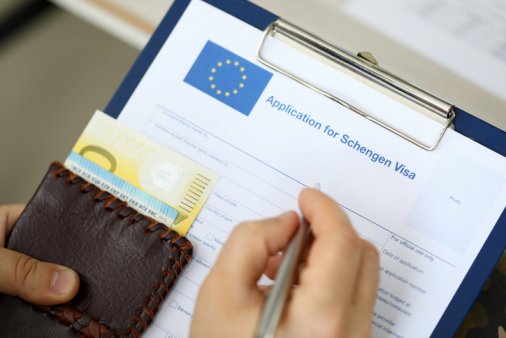Best Way to Carry Cash When Traveling
Find the most convenient and best ways to carry cash when traveling, including tips on wallets, cards, safe storage of funds, and digital payment methods.
Best Way to Carry Cash When Traveling Abroad
-
Keeping cash in different locations helps you to stay safe from losses when traveling abroad.
-
Don’t rely on one mode of payment; instead, carry a mix of cards, cash, and digital wallets for convenience and security.
-
In case of lost or stolen cash, report the incident, use travel insurance, money transfer apps and embassy assistance to get back on track.
Managing cash while traveling is an important part of the trip. However, knowing the best way to carry cash when traveling can help avoid theft, loss, and other unwanted situations. It may seem complex, but if you plan your budget well and exercise safe money practices, you can handle your funds conveniently while focusing on the trip.
This guide will help you to find out the best way to carry cash while keeping potential threats at bay. Also, you will get to know about some other alternatives to cash that you can use in a foreign land.
Best Way to Carry Cash Safely When Traveling
When traveling, carrying cash is essential to avoid theft or loss. Here are some smart strategies, or you can say the best way to carry cash when traveling to your most awaited destination.
Use Multiple Storage Locations
Never keep all your cash in one place. Distribute it between different spots, like your wallet for daily expenses, a secure pouch or money belt for emergency funds, and a backup stash in your luggage or hotel safe.
This ensures that even if you lose your wallet or face theft, you still have access to some cash. When dividing your money, avoid predictable hiding spots like outer backpack pockets.
Instead, go for inside jacket pockets, hidden compartments, or secure travel gear. Using multiple storage locations lowers the risk of losing everything at once and offers you security throughout your journey.
Use a Money Belt or Hidden Pouch
A money belt or hidden pouch is a discreet way to keep your cash safe while traveling. These are not like a regular wallet and can be worn under your clothes, which makes them less accessible to pickpockets.
Money belts come in different styles, including flat waist pouches and neck wallets. Both are ideal for storing cash, passports, and important documents.
If a money belt feels uncomfortable, hidden travel scarves with secret pockets or even socks with concealed compartments are great alternatives. The key is to keep your valuables close to your body and out of sight, reducing the risk of theft in crowded areas or public transportation.
Carry Small Denominations
Carrying large bills can make transactions difficult and attract unwanted attention. Instead, bring a mix of small and medium denominations, which are easier to use for public transport, street vendors, or tipping.
When exchanging money, request smaller bills and avoid flashing large sums in public. Having smaller notes ensures smoother transactions and reduces the need to find change in unfamiliar places.
Additionally, keeping some loose change for quick payments can prevent you from pulling out a visible stack of cash, keeping your money safer while traveling.
Besides managing cash, make sure to get coverage for baggage loss and other essentials with AXA Travel Insurance.
Payment Alternatives for International Travel
Managing your funds while traveling requires planning how you’re going to handle your expenses ahead of time. Instead of sticking to cash as a mode of payment, keeping flexibility is good for two reasons. One is that you don’t lose everything at once and have something to rely on if one way doesn’t work out as planned. Secondly, you can juggle between larger and smaller transactions and don’t have to commit all of your resources to a single option.
Let’s look at some reliable ways to carry your funds more securely when planning a trip abroad.
Multicurrency Cards
A popular alternative to carrying cash is a prepaid travel card, which allows you to securely hold multiple currencies while still being cashless. This can come in handy when withdrawing local money or shopping overseas without paying conversion charges.
Prepaid travel cards are often protected against theft or fraud and are one of the most secure ways to carry your funds while traveling.
Traveler’s Checks
Although less commonly used, traveler’s checks are still available and accepted at selected merchants abroad. They are issued in set denominations and can be exchanged for local money or used to purchase goods or services abroad.
They can be replaced using the unique serial number, so keep a copy with a trusted relative in case you lose them. A certain fee may apply when purchasing or exchanging them for currency at your travel destination.
Digital Options
Digital wallets and mobile applications are more convenient for making payments without pulling out cards or cash.
You can link the apps to your bank account or cards and use them to pay for in-store and online purchases. This is a contactless way to handle transactions while minimizing the need for physical cash.
Debit and Credit Cards
Debit cards are linked to your bank account and allows you to make payments or withdraw money from ATMs with your available balance. Check with your bank for withdrawal fees or partner banks to minimize costs. Checking beforehand about withdrawal fees also helps in avoiding unwanted shocks.
Credit cards allow you to spend money with interest charges and often apply foreign transaction fees for payments abroad. Look for cards which have no foreign transaction fees to reduce costs. You can also benefit from the perks tied to them, such as luggage discounts, lounge access, or even cashback.
What to Do if Your Cash is Lost or Stolen
While there are several best ways to carry cash when traveling, you might get into an unfortunate situation of losing cash. But, a quick action can help lower the impact. Here’s what to do if your cash is lost.
Report the Incident
File a police report immediately in the local jurisdiction where the loss or theft happened. Get a copy of the report as you will need it for travel insurance claims, and it may help in potential recovery.
If you lose cash in a hotel, restaurant, or public place, notify staff or security. They may have found it or have surveillance footage. Give as much detail as possible about the circumstances of the loss and the amount of cash involved.
Contact Your Travel Insurance Provider
If your travel insurance covers lost or stolen cash, contact your provider as soon as possible.
Provide necessary documents like a police report and proof of withdrawal or exchange receipts to process the claim. Some policies also have limitations, so check them beforehand.
Use Available Money Transfer Apps
If you need cash urgently, use money transfer apps like Western Union, Wise, or PayPal to receive funds from family or friends.
Many services offer instant or same-day transfers to local banks or cash pick-up locations. Make sure you have the internet to complete transactions and check exchange rates and fees to get the best value.
Visit Your Embassy For Help
In case you have lost a major amount of cash and are facing difficulties in a foreign land, contact your embassy or consulate for assistance. They can’t provide direct assistance but can guide you on how to contact family or friends for emergency funds and use money transfer services or local resources.
FAQs About Best Way to Carry Cash When Traveling
1. Is it fine if I only carry credit cards to manage funds and expenses in the destination country?
Cards can be a convenient payment tool, but you must couple them with local currency to manage small expenses or to cover situations when cards might not be accepted.
2. Should I get currency exchanged before traveling or at the destination?
Getting the currency exchanged before departing can be reliable to get better exchange rates. Certain apps track exchange rates and compare multiple options, so look for one that offers the best value.
3. How much cash should I carry for my trip?
Research the national laws of the destination to check the permissible limits and ensure that you carry within the bounds to avoid confiscation. Carry enough for the daily expenses, considering emergency situations where cards might not be accepted.

Travel Assistance Wherever, Whenever
Speak with one of our licensed representatives or our 24/7 multilingual insurance advisors to find the coverage you need for your next trip. Contact Here



